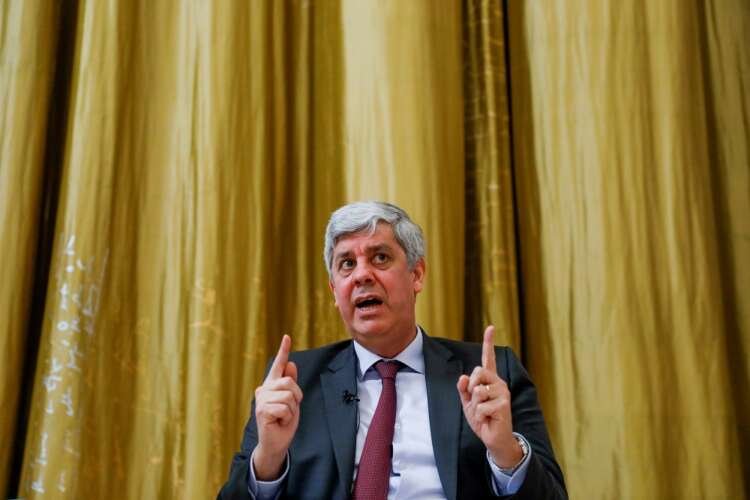ECB’s Centeno warns of possible policy overreactions
Published by Jessica Weisman-Pitts
Posted on October 10, 2022
2 min readLast updated: February 3, 2026

Published by Jessica Weisman-Pitts
Posted on October 10, 2022
2 min readLast updated: February 3, 2026

By Sergio Goncalves
LISBON (Reuters) – The European Central Bank (ECB) should avoid overreactions that could lead to a loss of credibility and must gradually normalise its monetary policy after a long period of ultra-low interest rates, ECB policymaker Mario Centeno said on Monday.
The ECB raised its main interest rate by a record 75 basis points in September as euro zone inflation accelerated to 10% that month, mainly spurred by soaring energy prices as a consequence of Russia’s invasion of Ukraine.
“The normalisation of monetary policy is absolutely necessary and desirable in the European context … at the same time monetary policy decisions must be gradual and guided by flexibility and proportionality,” Centeno told an event in Lisbon.
He warned that the costs of an “aggressive monetary policy” could outweigh the benefits and that the effectiveness of monetary policy was limited in the face of supply shocks such as energy market disruptions and shortages of raw materials, requiring prudence.
“A decision maker cannot himself become a factor of instability … and it will be worse if the decisions have to be reversed shortly afterwards, affecting the credibility, in particular of central banks,” Centeno said.
On the other hand, if there were signs of de-anchoring inflation expectations, and second-round effects, such as on wages, they would require decisions to avoid a combination of high inflation and high interest rates.
Centeno said that, in that case, the costs of acting too late would be clearly higher, and so it was important to keep inflation and price volatility limited to certain categories of goods and services.
(Reporting by Sergio Goncalves, editing by Andrei Khalip, Robert Birsel)
Monetary policy refers to the actions taken by a central bank to manage the money supply and interest rates to achieve macroeconomic objectives such as controlling inflation, consumption, growth, and liquidity.
Inflation is the rate at which the general level of prices for goods and services rises, eroding purchasing power. It is typically measured by the Consumer Price Index (CPI).
The European Central Bank (ECB) is the central bank for the euro and is responsible for monetary policy in the Eurozone, aiming to maintain price stability and support economic growth.
Financial stability refers to a condition where the financial system operates effectively, with institutions able to manage risks and absorb shocks without causing widespread economic disruption.
Interest rates are the cost of borrowing money or the return on savings, expressed as a percentage of the principal amount. They are influenced by monetary policy and economic conditions.
Explore more articles in the Top Stories category











